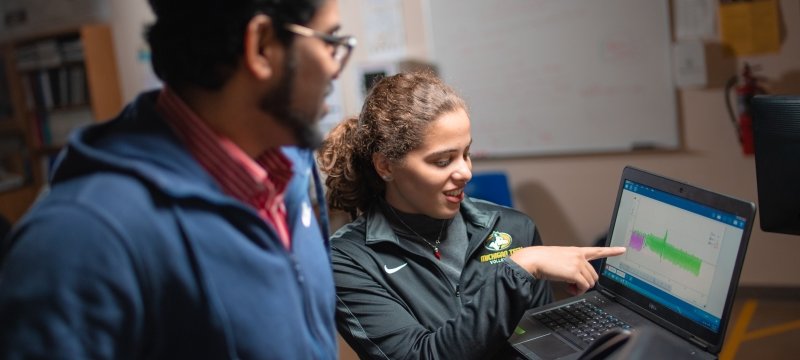Researchers in the Cardiovascular Physiology Laboratory aim to understand how the central autonomic nervous system regulates cardiovascular function and body fluid and sodium homeostasis. The focus of our research is to identify the neural mechanisms of sympathetic activation in cardiovascular diseases.
Contact
Location: Dow 414
Current Research
Sympathetic activation is an important contributor to Salt-Sensitive Hypertension (SSH) and Congestive Heart Failure (CHF). Dysfunction within the central nervous system contributes to the sympathetic activation in these cardiovascular diseases. Accumulating evidence indicates that autonomic neurons in the hypothalamic paraventricular nucleus (PVN) play an important role in regulating sympathetic nerve activity (SNA) in these cardiovascular diseases.
Currently, we are studying whether the intrinsic properties (ion channels) of autonomic neurons in the hypothalamus are modified during the development of SSH and CHF, e.g., to enhance their excitability and tonic discharge frequency in support of elevated SNA, and if this occurs, by what mechanism. Multilevel approaches ranging from whole-animal study to ion-channel recordings are currently being applied to these projects.
Obesity and diabetes are major etiological factors contributing to the development of hypertension. Evidence suggests that these metabolic disorders raise blood pressure via activation of sympathetic nervous system. The secondary focus of our research is determining neural mechanisms of sympathetic activation related to these metabolic disorders.
Exercise training induces adaptive autonomic and cardiovascular adjustments in both physiological and pathophysiological status (cardiovascular diseases and metabolic disorders). Evidence indicates that exercise training also induces significant functional and neuroplastic changes among autonomic neurons in the central nervous system (brain stem and hypothalamus). We plan to develop projects that study the neuronal mechanisms of exercise training in mediating the autonomic and cardiovascular adjustments in cardiovascular diseases and metabolic disorders.
Support This Lab
Undergraduate and graduate research opportunities are made possible in part by the generosity of donors and alumni.
Researchers
- Professor, Kinesiology and Integrative Physiology
- Affiliated Professor, Biological Sciences
- Affiliated Professor, Biomedical Engineering
Research Interests
- Cardiovascular physiology, neurophysiology and exercise science.
- Neural mechanisms of cardiovascular diseases and metabolic disorders.
- Neural mechanisms of exercise training in regulating autonomic and cardiovascular function.

